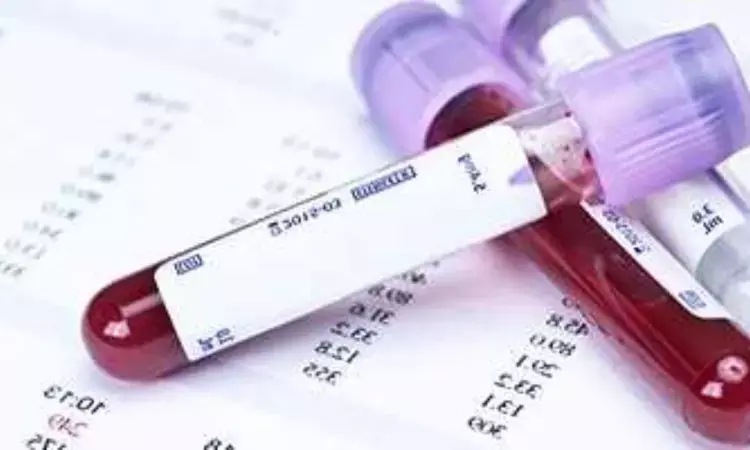- Home
- Medical news & Guidelines
- Anesthesiology
- Cardiology and CTVS
- Critical Care
- Dentistry
- Dermatology
- Diabetes and Endocrinology
- ENT
- Gastroenterology
- Medicine
- Nephrology
- Neurology
- Obstretics-Gynaecology
- Oncology
- Ophthalmology
- Orthopaedics
- Pediatrics-Neonatology
- Psychiatry
- Pulmonology
- Radiology
- Surgery
- Urology
- Laboratory Medicine
- Diet
- Nursing
- Paramedical
- Physiotherapy
- Health news
- Fact Check
- Bone Health Fact Check
- Brain Health Fact Check
- Cancer Related Fact Check
- Child Care Fact Check
- Dental and oral health fact check
- Diabetes and metabolic health fact check
- Diet and Nutrition Fact Check
- Eye and ENT Care Fact Check
- Fitness fact check
- Gut health fact check
- Heart health fact check
- Kidney health fact check
- Medical education fact check
- Men's health fact check
- Respiratory fact check
- Skin and hair care fact check
- Vaccine and Immunization fact check
- Women's health fact check
- AYUSH
- State News
- Andaman and Nicobar Islands
- Andhra Pradesh
- Arunachal Pradesh
- Assam
- Bihar
- Chandigarh
- Chattisgarh
- Dadra and Nagar Haveli
- Daman and Diu
- Delhi
- Goa
- Gujarat
- Haryana
- Himachal Pradesh
- Jammu & Kashmir
- Jharkhand
- Karnataka
- Kerala
- Ladakh
- Lakshadweep
- Madhya Pradesh
- Maharashtra
- Manipur
- Meghalaya
- Mizoram
- Nagaland
- Odisha
- Puducherry
- Punjab
- Rajasthan
- Sikkim
- Tamil Nadu
- Telangana
- Tripura
- Uttar Pradesh
- Uttrakhand
- West Bengal
- Medical Education
- Industry
Hemoglobin Glycation Index valuable Biomarker for Frailty and Mortality in Hypertension: Study

According to a new study Hemoglobin Glycation Index (HGI) is a valuable biomarker in hypertensive patients: higher HGI levels are linked to increased frailty risk, and its U-shaped association with all-cause mortality underscores its importance for risk stratification. The study was published in BMC Diabetology & Metabolic Syndrome by Zebin Lin and colleagues.
In the study, 1773 hypertensive participants from the CHARLS database were analyzed. HGI was calculated by the following formula: HGI = measured HbA1c – predicted HbA1c. Frailty and mortality associations were examined by multivariable logistic regression, Cox proportional hazards regression, mediation analysis, and threshold effect detection. The investigators specifically assessed whether diabetes acted as a mediator and explored possible inflection points in the HGI–mortality curve for non-linear patterns.
Results
• HGI was independently associated with frailty, with an adjusted OR of 1.28 (95% CI: 1.03–1.60).
• Mediation analysis showed that diabetes accounted for 27.8% of the link between increasing HGI and the risk of frailty, supporting the hypothesis that hyperglycemia is a major factor in the functional decline of hypertensive patients.
• The researchers found a U-shaped relationship for mortality, with an inflection point at HGI = –0.15.
• Among the overall hypertensive sample, in those with HGI ≥ –0.15, the association of HGI with mortality was not statistically significant (adjusted HR 1.17; 95% CI: 0.92–1.50).
• Among frail patients in this same HGI range, however, every 1-unit increase in HGI was associated with a 60% increased risk of mortality (HR 1.60; 95% CI: 1.11–2.32).
• When HGI was less than –0.15, higher HGI values were related to lower mortality in the general hypertensive population, with an adjusted HR of 0.68; 95% CI: 0.49–0.95.
• A somewhat similar protective trend seems to have appeared in the frailty subgroup, where the adjusted HR was 0.36; 95% CI: 0.13–0.97.
This study showed that HGI is a meaningful biomarker of frailty and mortality in hypertensive patients. These findings indicate that HGI can be used to guide risk stratification and enhance clinical decision-making in managing hypertension.
Reference:
Dr Riya Dave has completed dentistry from Gujarat University in 2022. She is a dentist and accomplished medical and scientific writer known for her commitment to bridging the gap between clinical expertise and accessible healthcare information. She has been actively involved in writing blogs related to health and wellness.
Dr Kamal Kant Kohli-MBBS, DTCD- a chest specialist with more than 30 years of practice and a flair for writing clinical articles, Dr Kamal Kant Kohli joined Medical Dialogues as a Chief Editor of Medical News. Besides writing articles, as an editor, he proofreads and verifies all the medical content published on Medical Dialogues including those coming from journals, studies,medical conferences,guidelines etc. Email: drkohli@medicaldialogues.in. Contact no. 011-43720751


